|
Plenary Keynote Addresses Program To join the Zoom presentations, please click here. Time zone: (GMT-4:00) - US Eastern Time Tuesday, September 12, 2023 How Do Students Learn Artificial Intelligence in Interdisciplinary Field of Biomedical Engineering?
Tuesday, September 12, 2023 / 8:00 AM - 8:35 AM

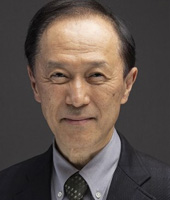 Professor Shigehiro Hashimoto, Japan Professor of Kogakuin University (Former Councilor and Former Dean, Faculty of Engineering, Former Associate to the President, Former President of the Society of Life Support Engineering Japan), Doctor of Engineering and Doctor of Medicine, Research Area: Biomedical Engineering.
Dr. Shigehiro Hashimoto now is a professor of Biomedical Engineering, Faculty of Engineering, Kogakuin University, Tokyo, Japan. He got his Bachelor of Engineering in Mechanical Physics (1979), and Master of Engineering at Tokyo Institute of Technology (1981), Tokyo, Doctor of Medicine at Kitasato University (1987), Sagamihara, and Doctor of Engineering at Tokyo Institute of Technology (1990), Tokyo.
He was Research Associate in School of Medicine (1981-1989), and Assistant Professor in School of Medicine (1989 -1994), at Kitasato University, Associate Professor in the Department of Electronics (1994- 2001), and Professor at Osaka Institute of Technology (2001-2011). He also was the Creator of the first Department of Biomedical Engineering in Japan at Osaka Institute of Technology (2005) and Director of its Medical Engineering Research Center (2005-2011). He was Associate to President and Dean of Admissions Center (2012-2018), Dean, Faculty of Engineering (2019-2021) at Kogakuin University, Tokyo. He experienced internship in Research Center for Artificial Heart in Free University in Berlin (1977). He is the author of the books of “Polydimethylsiloxane, Structure and Applications (2020)”, “Introduction to Biosystems Engineering (1996)”, “Introduction to Bio-measurement Engineering (2000)”, and “Introduction to Biomechanical Engineering (2013)”. His present researches focus on bio-cellular mechanics using micro-machined flow channel. shashimoto@cc.kogakuin.ac.jp | http://www.mech.kogakuin.ac.jp/labs/bio/
Abstract
The Artificial Intelligence (AI) research field is interdisciplinary. In this research, based on students' understanding of the current situation, AI is considered in relation to biomedical engineering, which is one of the interdisciplinary fields. Students expected the effectiveness of AI for society while having ethical and security concerns. Along with the increase in communication speed with large memory capacity and networking, many results have been obtained in the field of biomedical engineering: decoding DNA base sequences and digitizing medical images. On the other hand, security issues are being discussed in information networks: handling of personal genetic information. AI is expected to be used as a means of interdisciplinary communication: interdisciplinary participation is desirable. In the future, attitudes about using AI may become one of the main principles of human society.
A Brave New World: AI as a Nascent Regime?
Tuesday, September 12, 2023 / 8:40 AM - 9:15 AM

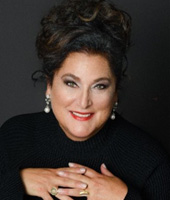 Dr. Jasmin (Bey) Cowin, USA/Germany Associate Professor and TESOL Practicum Coordinator, Touro University, Graduate School of Education, TESOL/BLE Department.
Dr. Jasmin (Bey) Cowin is a Fulbright Scholar; Assistant Professor and TESOL Practicum Coordinator at Touro University, Graduate School of Education; project coordinator for access and equity in digital literacy for Computers for Schools Burundi; co-Chair of the Technology Enhanced Language Learning SIG 2022 conference, elected member of the CALL-IS Steering Committee for the TESOL International 2023 Electronic Village, and past conference chair of the 51st NYS TESOL conference, 2021.
Dr. Cowin also served as an Editorial Board member of the Journal of Systemics, Cybernetics, and Informatics for its special issue "Trans-Disciplinary Communication; TESOL expert and Train the Trainer for the Future Horizons Foundation for Translation, Training, and Development in Sanaa, Yemen. She served Rotary as the retired Chair of the Rotary Club of New York United Nations International Breakfast Meetings and past President and past Rotary Assistant Governor for New York State for District 5.
Recent presentations focused on: The Metaverse: Layers, Applications, and Terminology, Leading Forward: Distributed Ledger Technologies for Education and Government Institutions, The Power of Trustless Immutability and The Future of Higher Education and Extended Reality: The Next Normal: Metaverse, Virtual Beings, AI cloning for the World Higher Education Ranking Summit (WHERS), Dubai, UAE.
Dr. Cowin brings over twenty-five years of experience as an educator, technology specialist and institutional leader. As an Education Policy Fellow at the EPFP™ Institute, Columbia University/Teachers College, she became part of a select group of strategic leaders analyzing trends regarding effective educational policy and leadership with a focus on preparing qualified educators for the complexities of 21st-century classrooms. Her extensive background in education, the Fourth Industrial Revolution, augmented and virtual reality simulation training, Green and Black Swan market shifts, not-for-profit leadership, and commitment to education as a basic human right provide her with unique skills and vertical networks locally and globally.
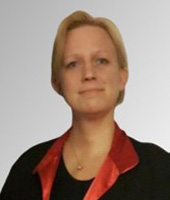 Professor Birgit Oberer, Austria ETCOP Institute for Interdisciplinary Research.
Prior to her current position, Dr. Birgit Oberer served as a professor at universities in the USA, Singapore, and Turkey, worked as a visiting professor in different countries and taught at Austrian Higher Education institutions. Dr. Oberer is currently a professor of computer science at the Education Directorate of Carinthia in Austria. She received her habilitation in Management Information Systems in 2015 and is accredited as an International Engineering Educator by the International Society for Engineering Pedagogy (IGIP). Dr. Oberer serves as a Coordinator at ETCOP and is Learning App Evaluator for the Austrian Federal Ministry of Education, Science and Research. She actively contributes to the academic community through various roles such as keynote and invited speaker, track and session chair, and scientific committee member for reputable journals and conferences, has received multiple teaching excellence awards and serves as the co-editor of the EBM book series.
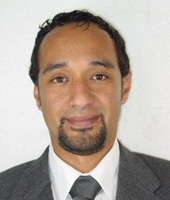
Cristo E. Yáñez-León, MSc., Ph.D. candidate, USA
New Jersey Institute of Technology, Director of Research, CSLA, Office of Research & Development.
In this role, Cristo manages the logistics of research programs as well as pre- and post-award actions for +100 active grants, overseeing the submission process of +200 proposals per year, serving as a liaison with the Office of Research, the College Dean, 6 departments, and over 110 faculty Pis.
Cristo’s experiences have included over 14 years in directive positions. Managing logistics, facilitating organizational development training, designing business innovation plans, and implementing innovation projects for organizations including NJIT, Northern Ocean Habitat for Humanity, Ocean County College, Monterrey Institute of Technology & Higher Education, and the University of Veracruz. Cristo also develops and facilitates courses for the Monterrey Institute of Technology & Higher Education “ITESM” in Latin America for C-Level executives of corporations including: KPMG, Chedraui Inc., Coca-Cola Femsa, PEMEX, Continental, Adelca, SemMaterials, and Adecco among others.
After completing his Master’s in Business Administration in 2015 with “Suma cum laude” he was awarded the “Generation Leader EXATEC 2021” title by the Monterrey Institute of Technology & Higher Education. Currently, he is a Ph.D. Graduate Student on Management and Innovation of Institutions, his research areas are Convergence, Innovation, Broadening Impact and Participation, Strategic Planning, Digital Marketing, and Business Storytelling.
Abstract
Aldous Huxley, in his seminal work 'Brave New World,' offers an incisive literary critique of a society where technological determinism also suppresses the quintessence of humanity. As we approach a paradigm dominated by Generative AI, the echoes of Huxley's admonitions are evident in contemporary debates about AI's trajectory and potential ramifications. Drawing parallels between Huxley's dystopia and the current technological milieu, this keynote and article take a deep dive into AI's potent capability to influence human behavior, shape societal norms, and potentially homogenize linguistic expression. Citing instances such as language simplification observed on platforms such as X (formerly Twitter) and ALEXA, we highlight the risks associated with an unchecked embrace of AI-driven tools that could inadvertently standardize and curtail the rich tapestry of human language, creative thoughts, and authentic expression. While acknowledging AI's transformative potential across domains, our discourse emphasizes the imperative of ethical considerations, democratic governance, and the preservation of core human values through trans-disciplinary connections, discourse, and debates. Using 'Brave New World' as a literary compass, we advocate for a transdisciplinary dialogue that critically assesses AI's impact on our social ethos, logos, and pathos. Furthermore, the article underscores our collective responsibility to harness AI's potential in ways that augment our shared human experiences without eroding the nuanced intricacies that define our identity and autonomy. It addresses the cost of uniformity and stability, the role of technology and consumerism, emotional experiences, deep relationships, personal growth, and the danger of totalitarian control with AI emerging as a nascent regime powered by oblique algorithms implemented by transnational global companies. This transdisciplinary keynote serves both as a reflection on humanity's place in an automated age and a call to action, urging for technological deployment that amplifies, rather than diminishes, our inherent humanity.
Data Management Sharing Plan: Fostering Effective Trans-Disciplinary Communication in Collaborative Research
Tuesday, September 12, 2023 / 9:20 AM - 9:55 AM

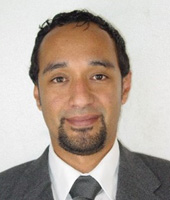 Cristo E. Yáñez-León, MSc., Ph.D. candidate, USA New Jersey Institute of Technology, Director of Research, CSLA, Office of Research & Development.
In this role, Cristo manages the logistics of research programs as well as pre- and post-award actions for +100 active grants, overseeing the submission process of +200 proposals per year, serving as a liaison with the Office of Research, the College Dean, 6 departments, and over 110 faculty PIs.
Cristo’s experiences have included over 14 years in directive positions. Managing logistics, facilitating organizational development training, designing business innovation plans, and implementing innovation projects for organizations including NJIT, Northern Ocean Habitat for Humanity, Ocean County College, Monterrey Institute of Technology & Higher Education, and the University of Veracruz. Cristo also develops and facilitates courses for the Monterrey Institute of Technology & Higher Education “ITESM” in Latin America for C-Level executives of corporations including: KPMG, Chedraui Inc., Coca-Cola Femsa, PEMEX, Continental, Adelca, SemMaterials, and Adecco among others.
After completing his Master’s in Business Administration in 2015 with “Suma cum laude” he was awarded the “Generation Leader EXATEC 2021” title by the Monterrey Institute of Technology & Higher Education. Currently, he is a Ph.D. Graduate Student on Management and Innovation of Institutions, his research areas are Convergence, Innovation, Broadening Impact and Participation, Strategic Planning, Digital Marketing, and Business Storytelling.
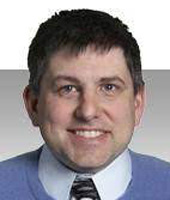 Dr. James Lipuma, USA New Jersey Institute of Technology, Director of the Collaborative for Leadership Education, and Assessment Research.
Dr. James Lipuma is a faculty member in the Humanities Department at the New Jersey Institute of Technology and director of the Collaborative for Leadership Education, and Assessment Research (CLEAR).
He holds a BS in Chemical Engineering from Stanford University, an MS in Environmental Policy Studies and a PhD in Environmental Science from NJIT, and a Master of Education in Curriculum and Teaching focused in Science Education from Teachers College, Columbia University. He conducts extensive research in digital learning, curriculum, and instructional design and is currently piloting online converged course delivery methods.
In his role as director, Dr. Lipuma has completed curriculum development, assessment design, program evaluation, and program design and development projects for public schools, universities, the NJ Department of Education, Us Department of Education, and the National Science Foundation. He has also taught more than 5,000 students in more than 200 courses in his 25 years at the New Jersey Institute of Technology. He has completed work on nearly $6M worth of grants including over $2.5M as lead Pi or CoPI as well as received over $250K worth of donations.
Legally blind since nine, Dr. Lipuma appreciates the need for positive change and works to promote broader participation for women and under-represented minorities in Science Technology, Engineering, and Mathematics (STEM) as part of STEMforsuccess.org and other STEM Literacy projects he leads.
Abstract
In this keynote address, we will discuss how the process of creating a Data Management and Sharing Plan (DMSP) requires Trans-Disciplinary Communication (TDC) when bringing participants together in its creation prior to its dissemination as a public document with a Digital Object Identifier (DOI). DMSP’s foster the need and opportunity for effective TDC by engaging its participants to think about dissemination and divulgation. The paper begins by defining a DMSP and presenting different federal guidelines for managing research Data. This will highlight the importance of DMSP in research and its role in ensuring the effective handling, preservation, and accessibility of research data. An example DMSP will be presented to illustrate the practical implementation of these guidelines. Due to different perspectives, various academic lenses, and the differential value of its participants the conversation around the content of the DMSP fosters TDC. At the same time, the process of creating a DMSP requires effective TDC to meet the guidelines prescribed by the funding agencies.
The Impact of Artificial Intelligence and the Importance of Transdisciplinary Research
Tuesday, September 12, 2023 / 1:00 PM - 1:35 PM

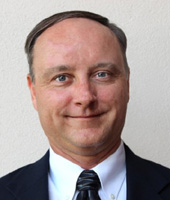 Dr. Robert Cherinka, USA MITRE Corporation, Chief Engineer, Software Engineering Innovation Center.
Dr. Robert Cherinka is the Chief Engineer of the Software Engineering Innovation Center for the MITRE Corporation. His expertise is in software, systems and process engineering, with a focus toward software quality and agile development technologies. Bob earned a Ph.D. and M.S. in Computer Science from Old Dominion University, Norfolk, Virginia, and a B.S. in Computer Science in 1987 from the University of Pittsburgh. Bob served 6 years as a software engineer in the US Air Force, before joining MITRE in 1993.
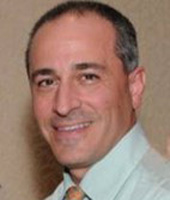 Joseph Prezzama, Msc., USA MITRE Corporation, Group Leader for the Joint Operations Southeast, Tampa office of the MITRE Corporation.
Mr. Joseph Prezzama, is Co-Department Head for the Joint Operations Southeast, Tampa office of the MITRE Corporation, MS Software Engineering. He earned, In 1996, a Master of Science in Software Engineering from Monmouth University, Eatontown, New Jersey. Prior to that, he earned a Bachelor of Science in Electrical Engineering from Trenton State College, Ewing, New Jersey.
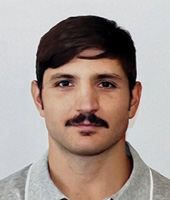
Patrick O’Leary, USA
MITRE Corporation, Software Application Development Engineer.
Patrick earned a Bachelor’s of Finance from Fordham University and a Bachelor in Computer Engineering from Florida International University.
Abstract
The growing use and availability of Artificial Intelligence (AI) and Machine Learning (ML) capabilities is influencing industries, societies, and the very nature of human to machine interaction. This plenary presentation delves into the impact of AI and underscores the critical role of transdisciplinary research in comprehending, harnessing, and guiding its evolution.
Transcending disciplinary boundaries, transdisciplinary research amalgamates expertise from diverse fields, fostering a holistic understanding of AI's intricate dimensions. By integrating insights from computer science, ethics, psychology, law, sociology, and more, transdisciplinary efforts illuminate AI's impacts from multiple angles. Firstly, the multidimensional nature of AI's impact underscores the need for nuanced approaches. Secondly, ethical considerations must be woven into AI's development, from design to deployment. Thirdly, collaboration between academia, industry, policymakers, and civil society is essential for addressing AI's challenges.
A short exploration of example use cases for which AI is having an impact will be provided, along with a deeper look and demonstration on a specific MITRE case study for using AI to assist curriculum design for education and training. A discussion of challenges, concerns, insights, recommendations, and future work will be provided.
Transdisciplinary Engagement: The Power of Perspective
Tuesday, September 12, 2023 / 1:40 PM - 2:15 PM

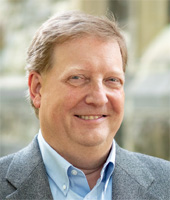 Dr. Robert A. Smith, USA Boeing Company and Virginia Tech, Calhoun Honors Discovery Program.
Dr. Robert A. Smith is a Boeing Senior Technical Fellow and is currently the Distinguished Professor of Practice for the Calhoun Honors Discovery Program at Virginia Tech where he is developing advanced complex problem-solving frameworks for collaborative sociotechnical innovation developments. He is a technical leader for strategy, avionics and remote sensing applications in Boeing Research & Technology for missile defense, space exploration, and satellite systems. He leads academic and industry collaboration in educational and workforce development efforts. He has received recognition from the Undersecretary of Defense for his Workforce Development activities and briefed Congressional committees.
Abstract
The keynote addresses the roles of communication, collaboration and creativity as enabling capabilities for a transdisciplinary engagement. When the capabilities are present, the perspective of all team members accelerates problem solving and drives innovative approaches to achieve desired outcomes. Reflection on the development of Discovery Thinking in an academic environment will provide context for the importance of transdisciplinary engagement in achieving student knowledge discovery. Reflection on a personal career journey that developed a transdisciplinary mindset will provide context for connectivity to Industry and Society at Large. A transformative vision can only be achieved through execution with a collaborative team that seeks out unheard perspectives, willing communicates personal perspectives and listens for the intersections that enable transdisciplinary integration of perspectives aligned to the desired outcome. Integration is the hard thing and transdisciplinary engagement has the ability to release the power of the team’s perspectives.
Enhanced Ambient Technologies in Smart Cities for Assistive Living
Tuesday, September 12, 2023 / 2:20 PM - 2:55 PM

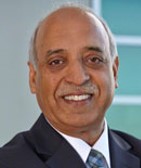 Professor Mohammad Ilyas, USA Florida Atlantic University, College of Engineering and Computer Science, Former Dean of the College of Engineering and Computer Science, Member of Global Engineering Deans Council.
Dr. Mohammad Ilyas has been with Florida Atlantic University’s College of Engineering and Computer Science since 1983. He has served there in various academic and administrative capacities, including Dean of the College from 2011 to 2017.
He has earned four academic degrees from four different countries; BSc in Electrical Engineering from Pakistan, MS in Electrical Engineering from Iran, PhD in Electrical Engineering from Canada, and PhD in Educational Leadership from USA.
Dr. Ilyas has over 235 publications, including one book, 26 handbooks, and over 210 research articles. He is life senior member of IEEE, Fellow of IIIS, member of Global Engineering Deans Council, and was on Fulbright Specialist list from 2017-2020.
Abstract
A smart city uses Artificial Intelligence (AI) and Information/Communication Technologies (ICT) in many ways to significantly improve the efficiency of its operations and improve the quality of life of its citizens. AI is increasingly becoming visible in many aspects of our existence. Emergence of AI can be viewed as an evolution based on the recent advances in computational platforms, and access to massive amount of data collected through pervasive communication networks such as Internet of Things (IoT). Smart cities use IoT and AI effectively to improve quality of life of our citizens and promote cohesive, connected, healthier, and happier communities. This talk will focus on enhanced ambient technologies in smart cities that support assistive living services primarily associated with elderly care and individuals with physical challenges, to improve their quality of life.
Wednesday, September 13, 2023 The Future of AI in Higher Education
Wednesday, September 13, 2023 / 8:00 AM - 8:35 AM

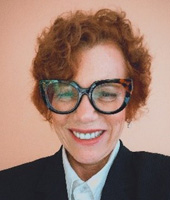 Dr. Risa Blair, USA Purdue University Global, USA, Adjunct Faculty, Department of Humanities and Social Sciences, School of General Education; Instructional Associates, Director of HR and Operations.
Dr Risa Blair is Passionate faculty training developer, instructional design manager, corporate trainer, and project manager with extensive experience in business and higher education, including LMS Administration, New Hire Course Development, LMS Reporting, Project Management, and Curriculum Development for Face-to-Face and Online Learning. Excellent skills in facilitating international client sessions and customizing delivery to meet the client's needs and exceed expectations. Use analytical and management skills to keep projects on schedule, in scope, and within budget. Team-oriented with a focus on managing multiple products and guiding the activities of others.
She is Chief Academic Officer for a start-up online international university. Responsible for creating masters' programs and collaborating on the development of the school catalog; hiring faculty to teach in programs; selecting and implementing appropriate LMS; determining educational management software; and representing the school in front of the Florida Commission for Independent Education for approval.
She Completed a Master of Science in Cybersecurity Management (December 2019), along with a Cybersecurity Internship. She seeks to design, develop, and deliver training in the field of Cybersecurity Management best practices.
Abstract
This presentation embarks on a journey through the realm of higher education, poised at the brink of an extraordinary transformation propelled by the potential of Artificial Intelligence (AI). At its core, the presentation delves into the practical applications that underscore AI's potential to revolutionize learning. AI enhances engagement and comprehension, promising a shift from conventional to newly emerging pedagogical approaches. Amid this transformative landscape, ethical considerations take center stage. The presentation navigates the intricate ethical tapestry woven by AI's integration in education, highlighting concerns encompassing data privacy, algorithmic biases, and the harmonious coexistence of human values with technological advancement. These deliberations underscore the imperative of a balanced and conscientious embrace of AI in education. A further exploration encapsulates AI's role in the realm of academic integrity. Through AI-powered plagiarism prevention mechanisms, educators are empowered to maintain the sanctity of scholarly pursuits. This dimension exemplifies AI's pragmatic influence, actively contributing to the preservation of authenticity and originality within academia. In sum, this presentation amalgamates theory and practice, weaving a narrative that elucidates AI's transformative impact on higher education. By practical application of AI tools and addressing ethical quandaries, and underlining the role of AI in fostering academic integrity and required changes in curriculum, the presentation equips the audience with a nuanced understanding of the multifaceted implications of AI in education. As higher education stands at the crossroads of innovation, this presentation serves as a guide, illuminating the path toward a harmonious integration of AI within academia.
Digital Humanities as a Transdisciplinary Communication Paradigm in the Age of AI
Wednesday, September 13, 2023 / 8:40 AM - 9:15 AM

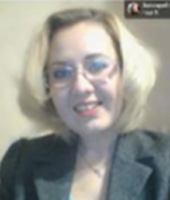 Professor Rusudan Makhachashvili, Ukraine Borys Grinchenko Kyiv University, Head of Germanic Philology Department.
Professor Rusudan Makhachashvili is Doctor Habilitated, English and Spanish major, Head of Germanic Philology Department of Borys Grinchenko Kiyv University, Ukraine. Expert of individual grant projects evaluation for the European Commission Horizon 2020 and Horizon Europe Frameworks (MSCA Individual and Global Fellowships). Head of observer institution group for the Horizon 2020 project ELEXIS (European Lexicographic Infrastructure). Expert staff member of the 7th Framework of the European Commission Project IRNet (International Research Network for study and development of new tools and methods for advanced pedagogical science in the field of ICT instruments, e-learning and intercultural competences). Expert staff member of the International Study of Leadership Development in Higher Education (Calgary, Canada). Member of Advisory group of Oxford English Dictionary. Advisor for Ukrainian universities on the development of curricula for master's degree in e-government - Program by Estonian Foreign Ministry & Tallinn University of Technology (Estonia), 2020. Expert of the Ministry of Education of Ukraine for e-learning platforms development (National School Online project). For 7 years, Rusudan Makhachashvili had served as a Vice-Dean for Research, before moving onto a position of the Head of Young Researchers Council to advance policy on interdisciplinary and cross-sectorial inquiry and best academic practices. Rusudan Makhachashvili was awarded the Ministry of Education Scholarship for outstanding research achievement.
Prof. Rusudan Makhachashvili is an academic supervisor of 15 successfully completed PhD theses on innovative social trends in digital communication and linguistic development in digital media. Editor in Chief of the Journal Synopsis: Text. Context. Media. Member of the Editorial boards of such journals as Open Educational E-environment of Modern University, International Journal of Research in E-learning, International Journal of Linguistics, Literature and Culture, Turkish Online Journal of Qualitative Inquiry.
Main academic interests include but are not limited to: interdisciplinary studies in Liberal Arts, digital education, digital humanities, e-society and e-governance, digital literacy development, cognitive and communicative linguistics, sociolinguistics.
Professor Rusudan Makhachashvili is the author of 17 books and over 200 published academic articles on a wide range of transdisciplinary topics covering the scope of research interests. Exemplary published works: Linguophilosophiс Parameters of English Innovations in Technosphere (UK, 2015), Models and Digital Diagnostics Tools for the Innovative Polylingual Logosphere of Computer Being Dynamics (Peter Lang, Berlin, 2020), ICT Tools and Practices for Final Qualification Assessment in the Framework of COVID-19 Lockdown (Poland, 2020), Digital Terraformation: Cyberspace Ontology, Anthropology, and Gnosis (Italy, 2021), Covid-19 context for meta assessment of digital learning on European and Oriental languages programs (USA, 2021), Linguistic Philosophy of Cyberspace (JSCI, USA, 2021).
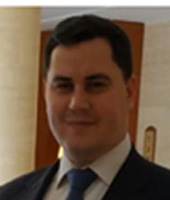 Professor Ivan Semenist, Ukraine Borys Grinchenko Kyiv University, Dean of Oriental Languages Faculty.
Professor Ivan Semenist, PhD, is Dean of Oriental Languages Faculty, Director of Confucius Class and Associate Professor at Borys Grinchenko Kiyv University, Ukraine. Chairman of the Board of the Chinese Language Teachers Association of Ukraine, Editor in Chief of Ukrainian Journal of Sinology Studies. Former Adviser to the Chairman of the Committee on State Building and Local Self-Government of the Supreme Council of Ukraine and CEO Services of Innovative Consulting Company L.L.C. (SIC Company).
He holds a M.A. with honors in World History from the Taras Shevchenko National University of Kyiv, Ukraine (2009). He received his Ph.D. in World History from the Taras Shevchenko National University of Kyiv, Ukraine (2013). Since 2015, have been working at the Borys Grinchenko Kyiv University of Kyiv. He is the author of more than 10 transdisciplinary B.A. and M.A. courses at the Borys Grinchenko Kyiv University. He regularly supports students as supervisor of B.A, M.A. theses. Ivan Semenist was awarded the Kyiv Mayor's Prize for special achievements in academia, the First prize of the Ambassador Extraordinary and Plenipotentiary of the People's Republic of China to Ukraine and the Medal of Borys Grinchenko for outstanding achievement.
Professor Ivan Semenist Initiated Establishment of the first Center for China Studies in Ukraine and equipment of the cutting-edge e-leaning center for Oriental languages studies, initiated and organized a number of international scientific conferences, round tables, and seminars (in Cooperation with CASS): the International Round Table "Transformational Processes in Modern Society: Ukrainian-Chinese Context", International Scientific Conferences "Confucius School: Sources-History-Present", All-Ukrainian Seminar for Chinese Language Teachers, International Scientific Conference to the 5th Anniversary of the "Belt and Road Initiative".
Main academic interests include but are not limited to: oriental studies, interdisciplinary studies in Liberal Arts, oriental languages, cultural and linguistic-literary ties of Europe with the countries of the East, American studies, relations of Ukraine with the countries of the East.
Professor Ivan Semenist is author of 5 books and around a 100 published academic articles on a wide range of transdisciplinary topics covering the scope of research interests. Exemplary published works: Modern Chinese Society -New Perspectives: New research between China and Ukraine scientists (Social Sciences Academic Press, China 2017), Japan's New Role In The World: The Discussion Of Early 1990's (Ukraine 2016), ICT Tools and Practices for Final Qualification Assessment in the Framework of COVID-19 Lockdown (Poland, 2020), Covid-19 context for meta assessment of digital learning on European and Oriental languages programs (USA, 2021), Interdisciplinarity and Skills Development in Final Qualification Assessment: Survey Study for European and Oriental Languages Programs (JSCI, USA, 2021). Abstract
As a product of modern civilization, the digital reality has become an independent format of being. Accordingly, electronic media act not only as a means of transmitting information, but also reveal their own world-creating, meaning-making and, as a consequence, communicative potential. The global digital realm stands as an integral environment, demanding new cognition and perception ways via complex philosophic, cultural, social, linguistic approaches, providing unlimited opportunities for human intellect, communicative development and research.
The seminal overview of meta-trends, changing the world by Snyder identified universal connectivity as a transcendent premise of technological trends development. Through the span of the following predictive Global Trends frameworks, provide the hindsight in the lens through which technological growth and advances features in the global development trendsetting. The sub-trend of the technological society development is manifested through the elaboration of an interdisciplinary paradigm of Digital Humanities – a diverse, open for augmentation, transdisciplinary range of areas of knowledge, applied activities and education in Arts and Humanities, centered on digital adaptation, production, processing, manipulation and dissemination of relevant thematic content: Digital history; Digital philology; Digital art; Digital education; Digital sociology; Digital music etc.
Taking into account the context of the erupted military intervention on Ukraine in February 2022, and the ensuing information warfare in various digital ambient (social media, news coverage, digital communications), the specific value is allocated to the enhanced role of digital humanism as a tool of the internationally broadcast strife for freedom and sovereignty. For the first time in modern history the full inventory of interconnected areas of digital humanities (from fact-checking via digital archives, to AI-powered content distribution algorithms and fake-news detection, to viral blogging and SMM, to big data processing and sociological analysis, to corpus analysis and computer assisted translation, digitally enhanced logistics coordination etc.) are implemented to achieve maximum advantage in the information warfare waged both on the cyberfront and in actuality. This development clearly heralds the branching out of digital humanities into new, undercharted areas of military digital humanities and digital peacekeeping, digital diplomacy.
Communication is considered as a factor of interoperability of source and target knowledge as well as transdisciplinary domains of application of language and technologies. The proposed model reveals the nature of communicative interaction in the digital environment in the following main dimensions: 1) EXODISCIPLINARY DIMENSION - compatibility of a) a person and the digital environment (augmented reality, mixed reality); b) people and digital objects; 2) ENDODISCIPLINARY DIMENSION – compatibility of a) a person as a subject and another subject in the digital environment; b) human and digital simulacra (virtual reality); 3) EXTRADISCIPLINARY DIMENSION – compatibility of a) a person as a subject of communication and generative AI (e.g. ChatGPT or other large language models) as a subject of communication or a source of cross-domain data; b) human and post-human subjects of communication (Web 5.0 technologies).
Trans-disciplinary and cross-referential integration between the corresponding skillsets, henceforth, constitutes a meta-framework of digital educational communication. The transdisciplinary integration of communication in digital education could be referred to the following key interdisciplinary domains: DIGITAL EDUCATION; DIGITAL CONTENT; INTEROPERABLE DIGITAL MEDIA; DIGITAL COMMUNICATION; DIGITAL SKILLS; DIGITAL OUTCOMES.
Taking into account the nature of suggested modelling of educational communication across frameworks of complex skills, it is stipulated that META-disciplinarity has become the universal vehicle or framework of education in the digital realm, whereas TRANS-disciplinarity can be perceived as a universal output of educational communication in the digital realm. Consequently, the communicative dimension of education proper acquires a meta-digital and trans-digital (transcendent digital) properties. The trans-digital characteristics of educational communication are ensured through the interoperability of such framework parameters as: Interaction, Disciplinarity, Learning.
The Role of Art and Science – Relational Dynamics in Human Ecology
Wednesday, September 13, 2023 / 9:20 AM - 9:55 AM

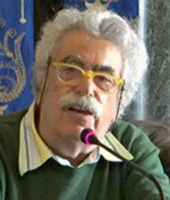 Professor Giorgio Pizziolo, Canada/Italy IIAS International Institute for Advanced Studies in System Research and Cybernetics in Ontario / Polytechnic University of Milan.
Professor Giorgio Pizziolo Former Full Professor of Analysis and Territorial Planning until 2010. Since 2002, Professor at IIAS International Institute for Advanced Studies in System Research and Cybernetics in Ontario, Canada.
During his teaching career (Full Professor in Florence, Analysis and Territorial Planning, Faculty of Architecture 1974-2010), he has developed territorial and landscape innovations for many years, conducting intensive experimental activities with studies, projects, and research at the local, national, and international level. He is Member of the Scientific Committee of the Center for Studies on Collective Futures (at the University of Trento).
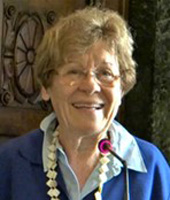 Professor Rita Micarelli, Canada/Italy IIAS International Institute for Advanced Studies in System Research and Cybernetics in Ontario / Polytechnic University of Milan.
Arq. Rita Micarelli is Former adjunct professor at the Polytechnic University of Milan (1997-2010) in Social Ecology and Architectural Technology, researcher in interdisciplinary knowledge, expert in social and educational learning processes related to micro-experiential activities practiced in the landscapes/environments of belonging of different communities and social groups.
Rita Micarelli and Giorgio Pizziolo have collaborated on numerous Research-Actions, focused on practices of Social Ecology and participation/belonging to living environments - Landscapes in relation to the UNESCO MAB (Man and Biosphere) Project and the implementation of the European Landscape Convention. They have contributed as experts to seminars and scientific meetings at the Council of Europe with numerous publications (www.graspthefuture.eu).
Professors at IIAS International Institute for Advanced Studies in System Research and Cybernetics in Ontario, Canada (President Prof. George Lasker).
They have developed projects that promote the relationship between communities and places, elaborating procedures and participatory experiments for the development and management of living environments (urban, rural, from the micro-local scale to the large-scale area).
All these activities have evolved into collaborative projects, leading towards the recognition and establishment of various types of Common Goods, all self-managed by Contemporary Communities. Often, they have also given rise to innovative territorial and economic management approaches, such as River Contracts and Landscape Contracts, plans in the form of "Slow planning," forms of "Participatory Governance," and even participatory experiential "landscape projects." These experiments have recently extended to collaborations with alternative social practices (urban and rural) that diverge from global exploitation (of cities, food, living environments... and people, especially the youth), within an ongoing production... The scientific and experiential activities have been presented, discussed, and published through Workshops, Symposia, and international and national Conferences, particularly at the annual IIAS meetings in Baden Baden and biennial Cognitonics conferences at the University of Ljubljana.(diredted by prof.Wladimir Fomichov and Olga Fomichova (Moscow).
Abstract
All the phenomena of the world originate from the dynamic and continuous interactions between multiple, differentiated and heterogeneous entities, such as physical, biological, geographic, cultural, economic, political, etc. that participate jointly in the dynamics of the biosphere, giving rise to further differentiations, resonances and relationships.
This condition has been acknowledged and interpreted differently by human groups and societies over the course of time.
Human organizations have produced a wide range of approaches to the complexity and evolution of the world, always acknowledged as a fundamental reference on which every culture has evolved, grown, propagated and has lasted in various environments of life.
Thus new and complex eco-diversity have been created, while new relational conditions in which human knowledge, skills and social potentials - matured in the form of religions, arts, sciences, economies and behaviours- developed and interacted over the centuries.
The appearance of humanity in the world has profoundly influenced its evolutionary conditions. New Ternary Ecosystems Man/Society/Environment (M/S/E) have gradually rooted on the planet, creating harmonious coexistence or extreme contradictions in any living environment progressively conquered.
Since then every human society, from aboriginal cultures to societies of the contemporary world, has participated in its becoming, spontaneously or with authoritarian determination, influencing its transformations.
The continuous interaction between the components of the Ternary System M/S/E within the biosphere has transformed the spontaneous interactions between Man and Nature, introducing in ecological cycles the mental abstraction and the technologies that have given place to new relationships, new dynamics and new evolutionary complexities.
In the contemporary condition, Ternary Ecosystems are profoundly altered, while the intricate complexes of relationships are in danger of breaking apart. In this state, Art and Science can still generate complexity in the ongoing evolutionary processes and new critical knowledge, opening new experiential dynamics that involve ternary ecosystems in their entirety.
This circular-ternary approach can be re-introduced into the trivialized dominant binary Systems (political, cultural, economic and technological) and concretely experienced through a wide range of participatory processes practicable in each field, as many Action Research initiatives are confirming in various contemporary ecosystem contexts.
A Comprehensive Cybernetic Machine Approach to Pedagogy
Wednesday, September 13, 2023 / 1:00 PM - 1:35 PM

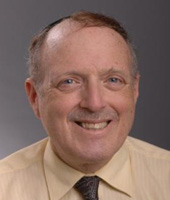 Dr. Russell Jay Hendel, USA Towson University, Department of Mathematics.
Dr. Russell Jay Hendel holds a doctorate in theoretical mathematics from M.I.T., an associateship from the Society of Actuaries, and a Doctor of Science in Jewish studies from the Spertus Institute for Jewish Learning and Leadership. He is currently an Adjunct III faculty member at Towson University, which is a Center of Actuarial Excellence. His research and publication interests include discrete number theory, actuarial science, biblical exegesis, the theory of pedagogy, applications of technology to pedagogy, and the interaction of mathematics and the arts. He regularly reviews papers for the American Mathematical Society and also reviews books for the Mathematical Association of America. Dr. Russell Jay Hendel is a current member of the American Mathematical Society, Mathematics Association of America, and AMIT. He also was Coordinator of Judges for the New York Mathematics Fair, 1995-2018, and has been listed as a noteworthy Educator by Marquis Who's Who. Dr. Russell Jay Hendel teaches actuarial mathematics at Towson University’s Center for Actuarial Excellence. He also hosts a website, rashiyomi.com, devoted to explaining the literary methods of Rashi a major biblical commentator. He resides in Baltimore, where he is co-president of the local AMIT chapter and is also a member of the AMIT President’s Circle. AMIT was named the top educational network in Israel by the ministry of education using both quantitative and qualitative metrics for many consecutive years.
Abstract
The great cybernetician Ashby cautioned against using emotional terms such as “higher cognitive” or “pedagogically challenging” without specific operational meaning. In that spirit, the purpose of this presentation is to re-formulate the concept of good pedagogy in purely machine terms using cybernetics. The advantages of such an approach are that i) pedagogy is clearly and specifically well-defined without any obscure terms and ii) pedagogy is defined independent of any particular content (and hence equally applicable to all contents).
This work builds on previous works summarizing a vast literature on good pedagogy in terms of the four educational pillars of I) executive function, II) best goal-setting, III) attribution theory, IV) self-efficacy. We briefly outline the cybernetic approach to these four pillars.
I) Executive function, a metric for pedagogic challenge, refers to a machine task that requires integration of two or more other machine tasks. II) Goal setting is defined in terms of algorithmic modularity, the breakup of machine tasks into smaller modules. Good goal setting refers to sub-modules that IIA) have clear input and output, IIB) can be achieved timely, IIC) require non-trivial algorithms say algorithms requiring decisions and loops. III) Attribution theory is the perception by a machine that evaluation of its output is dependent on internal machine processes such as IIIA) the non-triviality of algorithms involved and IIIB) the production of outputs. IV) Self efficacy is defined as the machine’s awareness that it can accomplish a requested goal without requiring more clarification.
As can be seen, the four pillars are defined in content-independent cybernetic terms equally applicable to machines and humans.
What is ChatGPT and its Present and Future for Artificial Intelligence in Trans-Disciplinary Communications?
Wednesday, September 13, 2023 / 1:40 PM - 2:15 PM

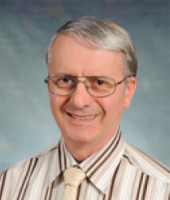 Professor Richard Segall, USA Arkansas State University, Department of Information Systems & Business Analytics (ISBA), Neil Griffin College of Business.
Dr. Richard S. Segall is Professor of Information Systems and Business Analytics at Arkansas State University in Jonesboro, AR where he also taught for ten years in the College of Engineering & Computer Science Master of Engineering Management (MEM) Program and is Affiliated Faculty of the Environmental Sciences Program and Center for No-Boundary Thinking (CNBT). He is also Affiliated Faculty at University of Arkansas at Little Rock (UALR) where he serves on thesis committees. He has previously served on the faculty of Texas Tech University, University of Louisville, University of New Hampshire, University of Massachusetts-Lowell, and West Virginia University. His publications have appeared in journals including International Journal of Fog Computing (IJFC), International Journal of Open Source Software and Processes (IJOSP), International Journal of Information Technology and Decision Making (IJITDM), International Journal of Information and Decision Sciences (IJIDS), Applied Mathematical Modelling (AMM), Kybernetes: TheInternational Journal of Cybernetics, Systems and Management Sciences, Journal of the Operational Research Society (JORS) and Journal of Systemics, Cybernetics and Informatics (JSCI).
He has book chapters in Research Anthology on Privatizing and Securing Data, Encyclopedia of Data Warehousing and Mining, Handbook of Computational Intelligence in Manufacturing and Production Management, Handbook of Research on Text and Web Mining Technologies, Encyclopedia of Information Science & Technology, and Encyclopedia of Business Analytics & Optimization. He has edited 5 published books: Biomedical and Business Applications using Artificial Neural Networks and Machine Learning published by IGI Global in 2022, Open Source Software for Statistical Analysis of Big Data published by IGI Global in 2020, Handbook of Big Data Storage and Visualization Techniques (2 volumes) published by IGI Global in 2018, Research and Applications in Global Supercomputing published by IGI Global in 2015, and Visual Analytics and Interactive Technologies: Data, Text and Web Mining Applications published by IGI Global in 2011.
He was a member of the Arkansas Center for Plant-Powered-Production (P3) from 2008 to 2016, and is currently on the Editorial Board of the International Journal of Data Mining, Modelling and Management (IJDMMM) and International Journal of Data Science (IJDS), and served as Local Arrangements Chair of the 2010 MidSouth Computational Biology & Bioinformatics Society (MCBIOS) Conference. His research interests include data mining, text mining, web mining, database management, Big Data, and mathematical modeling. His research has been funded by National Research Council (NRC), U.S. Air Force (USAF), National Aeronautical and Space Administration (NASA), Arkansas Biosciences Institute (ABI), and Arkansas Science & Technology Authority (ASTA).
He is recipient of Session Best Paper awards at the 2008, 2009, 2010, 2011, 2013 and 2016 World Multi-Conference on Systemics, Cybernetics and Informatics (WMSCI) Conferences, and Faculty Awards for Excellence in Research in 2015 and 2019 by Neil Griffin College of Business and University Award for Scholarship (Research) in 2020 at Arkansas State University.
Abstract
The development of ChatGPT and introduction in November 2022 by OpenAI has generated a turbulence in the conversational Artificial Intelligence (AI) arena with a new technology that generates written answers in response to verbal input as written queries such as that used in Chatbots, AI system conversations, and virtual assistants.
This talk provides an overview of research publications created in year 2023 alone. This presentation provides a brief introduction to what is ChatGPT and its development, its benefits and limitations, illustration of how ChatGPT works and its future in AI and Trans-Disciplinary Communications such as Trans-AI/DS the transformative transdisciplinary and translational artificial intelligence and Data Science (DS).
Trans-disciplinary Communication: Addressing Semantics
Wednesday, September 13, 2023 / 2:20 PM - 2:55 PM

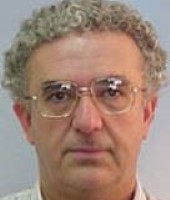 Dr. Maurício Vieira Kritz, UK/Brazil University of Manchester, Faculty of Biology, Medicine, and Health / National Laboratory for Scientific Computing, Petrópolis, Graduate Program on Modelling Knowledge Diffusion.
Dr. Maurício Vieira Kritz affirms that affirms that "I have been attracted to science while still in high-school. Ever since, I considered specialisation harmful to our knowing and to humankind. I entered college aiming at physics, blended into mathematics, and graduated with mayors in mathematical-physics and informatics. While working at the Brazilian Bureau of Censuses, I got a M.Sc in statistics and sampling, disciplines I missed in my background. My work at the Bureau also included the development of computer simulators for socio-economic phenomena. Adhering to general systems as a firm ground for my thinking was quite natural in that context. My PhD work addressed computational modelling of physical phenomena, although this term didn’t exist yet. Just after obtaining my PhD, I became the leader in a project that aimed to model artificial lakes in the Amazon region computationally. This task had thrown me into an adventurous quest to find simpler ways to describe, investigate, and understand living phenomena. This quest, centred since its onset on ideas of organisation and information, still fuel my thoughts even today. Decades after the Amazon project, I became co-PI to the flooded areas group in a multi-institutional network set up to model the Amazon landscape in all its dimensions: geo-physical, biotic, socio-economic, and human. Both projects provided me with the opportunity to visit scientific field sites in the jungle and to work with field ecologists. I have taught short and regular courses since graduating on several subjects, and regularly on modelling techniques since 2008." mauricio.kritz@manchester.ac.uk
Abstract
In the regular talk, I introduced some terminology, intellectual tools, and suggested that all actors in the scientific milieu be considered as living entities, as proposed by JG Miller in the last century. On the top of that, the Shannon-Weaver communication channel, an enlarged version of Shannon’s channel, was introduced as a basic platform to discuss communication between scientific milieu actors, academic and not, even if residing in different levels of organisation. Clarifying bottlenecks in this process is important to improve our abilities to cooperate. Improving communication within the scientific milieu is mandatory for catapulting scientific intellectual power of collectivities to the level needed to face nowadays global challenges.
The present presentation go a small step further in this direction, investigating the role of semantics in communication and the importance of requiring a strict match of meanings in dialogues in more detail. This discussion shall be based on improved versions of the enlarged Shannon-Weaver communication channel that can better address the problem of getting the semantics of messages or speech conveniently represented.
This talk revisits the problem of how to deal with semantics adherence across scientific disciplines and continues probing into the quest of how to turn a scattered scientific community into a meaningful collectivity of enlarged intellectual power, hopefully orders of magnitude greater than what is achieved today. It throws initial light in the possibilities and efficacy of multi-disciplinary scientific endeavours. As well, it improves and further sophisticates a framework for discussing issues related to trans-disciplinary communication in general, even if focusing on multi-disciplinary scientific groups.
The channel alterations being proposed address the second level of both sender and receiver, adding elements for representing the intervention of collective actors. However, some aspects confronted overflow towards level three of the channels, embracing dialogues’ efficiency.
Thursday, September 14, 2023 AI and Art: Whether Can AI Approach the Issue of What Art Is and What Beauty Is?
Thursday, September 14, 2023 / 8:00 AM - 8:35 AM

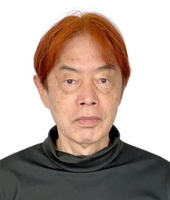 Professor Ryohei Nakatsu, Japan Kyoto University, Specially Appointed Professor, Art Innovation Academia-Industry Joint Research Division, Disaster Prevention Research Institute.
Professor Ryohei Nakatsu received B.S., M.S., and Ph.D. degrees in electronic engineering from Kyoto University in 1969, 1971, and 1982 respectively. After joining NTT (Nippon Telegraph and Telephone Corporation) in 1971, he mainly worked on speech recognition technology. In 1994, he joined ATR (Advanced Telecommunications Research Institute) as Director of ATR Media Integration & Communications Research Laboratories. In 2002 he became Professor at the School of Science and Technology, Kwansei Gakuin University. From March 2008 until December 2014, he was a Professor at the National University of Singapore (NUS) and was Director of the Interactive & Digital Media Institute (IDMI) at NUS. Now he serves as a Specially Appointed Professor at Disaster Prevention Research Institute, Kyoto University. Also, he is serving as CEO of NT & Associates. E-mail: nakatsu.ryohei.7r@kyoto-u.ac.jp, nakatsu.ryohei@gmail.com | https://researchmap.jp/read0087502?lang=en
Abstract
Technological advances in generative AI have made generating artistic images and videos relatively easy. Does this mean that AI has become creative? However, this does not mean that AI is creative, as it has learned from massive amounts of images and videos and generates images and videos that resemble them or are their combination. Unlike these studies, I am interested in whether we can use AI to approach the question of what art and beauty are. In particular, I focus on CycleGAN, which can interconvert between two sets of images. In this presentation, I will talk about some examples of my research; research on the comparative evaluation of figurative/abstract art in the East and West and research on the relationship between abstract art and natural objects (landscapes and urban landscapes) by combining CycleGAN (Cycle Generative Adversarial Network*) and psychological evaluation methods.
* Cycle Generative Adversarial Network, or CycleGAN, is an approach to training a deep convolutional neural network for image-to-image translation tasks. The Network learns mapping between input and output images using unpaired dataset.
Harmonizing Horizons: The Symphony of Human-Machine Collaboration in the Age of AI
Thursday, September 14, 2023 / 8:40 AM - 9:15 AM

 Professor Birgit Oberer, Austria ETCOP Institute for Interdisciplinary Research.
Prior to her current position, Dr. Birgit Oberer served as a professor at universities in the USA, Singapore, and Turkey, worked as a visiting professor in different countries and taught at Austrian Higher Education institutions. Dr. Oberer is currently a professor of computer science at the Education Directorate of Carinthia in Austria. She received her habilitation in Management Information Systems in 2015 and is accredited as an International Engineering Educator by the International Society for Engineering Pedagogy (IGIP). Dr. Oberer serves as a Coordinator at ETCOP and is Learning App Evaluator for the Austrian Federal Ministry of Education, Science and Research. She actively contributes to the academic community through various roles such as keynote and invited speaker, track and session chair, and scientific committee member for reputable journals and conferences, has received multiple teaching excellence awards and serves as the co-editor of the EBM book series.
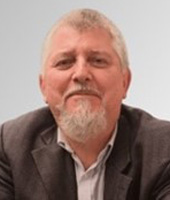 Professor Alptekin Erkollar, Austria ETCOP Institute for Interdisciplinary Research.
Dr. Alptekin Erkollar, Chairman of the Board of Directors at ETCOP, is a professor of Management Information Systems with over 30 years of experience. He specializes in industry 4.0, education 5.0, artificial intelligence, and digital transformation. Dr. Erkollar has received numerous awards for his research and teaching and has published journal articles on his areas of expertise. Prof. Erkollar has taught and conducted research as a visiting professor at universities in the USA, Singapore, and other countries. Dr. Erkollar is an active member of professional organizations such as IGIP and the Horizon Europe Community Austria. He serves on editorial boards and conference committees and has given keynote speeches at numerous international conferences. Dr. Erkollar is the editor of the international ‘Enterprise and Business Management EBM’ book series. His passion for Management Information Systems continues to inspire the next generation of MIS professionals.
Abstract
In the fascinating era of artificial intelligence (AI), we are witnessing a remarkable partnership between humans and machines. Imagine a symphony where humans and AI systems work seamlessly together, each playing their unique role to create something extraordinary. We invite attendees of all backgrounds to explore this harmonious collaboration. We will discover how AI is not here to replace us, but to enhance our capabilities. Whether you are a linguist, engineer, economist, social scientist, or natural scientist, this talk will show you how AI can be your creative companion, problem-solving ally, and source of innovation. We will also explore the importance of trust and communication in this partnership. How do we make sure AI understands our intentions, and how do we trust its suggestions? These are questions we'll demystify together. Let's embrace the future together and understand how this symphony of collaboration can lead us to new horizons in our ever-changing world.
Interdisciplinary and Transdisciplinary Communication: Understanding and Convincing Others
Thursday, September 14, 2023 / 9:20 AM - 9:55 AM

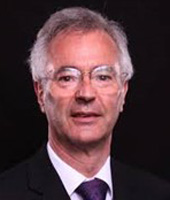 Richard Self LLM, UK University of Derby, The School of Computing and Mathematics, Senior Lecturer in Governance of Advanced and Emerging Technologies.
Richard Self is a Senior Lecturer in Governance of Advanced and Emerging Technologies at the University of Derby in the UK. He gained his business background during 30 years at Rolls-Royce before changing to academia in 2002.
His approach to students is not to teach answers, rather he inspires, challenges, mentors and guides his students to find important questions and then how to research to find relevant answers for the specific context using interdisciplinary approaches. He guides the students into their own experiences in order to find the insightful questions that motivates them to their best work. His focus is on inspiring students to evaluate their personal and employability skills and then to develop their full range of skills in order to become the most employable graduates in the market. This is based on research into a range of teaching and assessment approaches that can demonstrate measurable improvements in their academic skills and in their transferable skills. This research is published at conferences and in journals.
Abstract
Inter and trans disciplinary communication presents many challenges. We often fail to connect with our audiences. We fail to show the excitement and value of our ideas, we fail to understand what others are trying to tell us. We often do not understand each other’s jargon.
The International Association FOR Transdisciplinary Communication (AFTC) has been founded to address this problem.
Communication is about winning both hearts and minds. It involves connecting with the audience at an emotional level as well as at an intellectual level. It involves choosing our language and words carefully.
This keynote will explore some of the critical factors which all researchers, communicators, students and leaders must take into account, if they are to succeed in persuading their audiences of the value and importance of their ideas, whether within or out with their own domain of knowledge.
Emotional Communication as a Complex Phenomenon in Musical Interpretation – Proposal for a Systemic Model That Promotes a Transdisciplinary Process of Self-Formation and Reflection Around Expressiveness as a Lived Experience
Thursday, September 14, 2023 / 1:00 PM - 1:35 PM

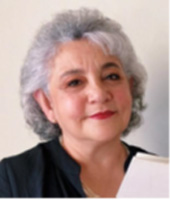 Professor Fuensanta Fernández de Velazco, Mexico Benemérita Universidad Autónoma de Puebla, Faculty of Arts, professor, researcher, an active member of the Seminar on Theories, Methods, and Models of Social Complexity, the Complexity Sciences Center (C3) of the National Autonomous University of Mexico.
Professor Fuensanta Fernández de Velazco is PhD in Music Education from the Music Postgraduate Program at UNAM (Cum Laude). She has a master’s degree in Permanent Education from the International Center for Prospective and Higher Studies (CIPAE), Puebla; master’s degree in Music-Pedagogy from the Munich Higher School of Music, Germany; Master's degree in Piano, under the direction of Klaus Schilde, from the Higher School of Music in Munich, Germany; and a Master's Degree in Rhythmic Music Education from the National Academy of Trossingen, Germany, with Professor Brita Glathe. She completed specialized studies in Rhythmic at the Higher School of Music in Freiburg, Germany, with Professor Martina Jacobi, and at the Jaques-Dalcroze Institute in Geneva, Switzerland, with Professor Malou HattArnol.
She is currently a pianist and a full-time teacher and researcher at the Faculty of Arts of the Benemérita Universidad Autónoma de Puebla (BUAP); member of the BUAP Register of Researchers. Dr. Fernández de Velazco participated in the creation of the Master of Arts: Inter and Transdisciplinarity at the BUAP and was its coordinator for the last six years. Z
Since 2018, she has been part of the Admission Subcommittee of the field of Music Education the Postgraduate in Music of the National Autonomous University of Mexico (UNAM). From 2010 to 2016 she was an active member of the Seminar on Theories, Methods, and Models of Social Complexity, directed by Dr. Felipe Lara-Rosano, belonging to the Laboratory of Cybernetics and Complex Systems of the Center for Applied Sciences and Technological Development (CCADET), and to the Complexity Sciences Center (C3) of the National Autonomous University of Mexico.
Abstract
For a long time, expressiveness in musical performance was a matter of musical performance and research. It was difficult to explain why musicians arouse aesthetic emotions in their listeners with their interpretation, but it was more complex to explain why the performance of the same work by various artists provoked different emotional responses in listeners. Thanks to empirical research, our understanding of this phenomenon has improved. However, these theories and discoveries have not permeated teaching practice, so it takes a new orientation.
This proposal establishes a new approach to expressiveness in musical interpretation in a systemic and complex way. For this, we propose a systemic model that allows us to observe the dynamic behavior of the phenomenon of emotional communication in musical interpretation. Finally, we suggest a systemic-transdisciplinary didactic proposal to encourage the interpreter to develop her musical identity, reinforce her sensitivity and creativity, and enrich her expressive and participatory intention in the interpretation.
The Ethics of Artificial Intelligence in the Era of Generative AI
Thursday, September 14, 2023 / 1:40 PM - 2:15 PM

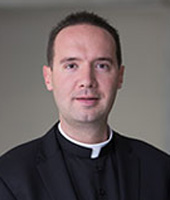 Fr. Dr. Joseph R. Laracy, USA Seton Hall University, Department of Systematic Theology & Department of Mathematics and Computer Science.
Father Laracy is a priest of the Roman Catholic Archdiocese of Newark and assistant professor at Seton Hall University. He earned a doctorate from the Pontifical Gregorian University in Rome. Within the field of systemics, Laracy is interested in systems theory (e.g., cybernetics), applied dynamical systems (e.g., modeling with differential equations), and systems engineering (e.g., safety & security engineering). Laracy's principal theological interests are in the intersection of faith & reason and theology & science. A significant part of his research and teaching is focused on placing the Catholic Intellectual Tradition, especially theology, in dialogue with the sciences: formal science (e.g., logic & mathematics), natural science (e.g., astrophysics & evolutionary biology), applied science/engineering (e.g., cybernetics), and medicine (e.g., psychiatry). Laracy's early career interests as a graduate student at the Complex Systems Research Laboratory at MIT concentrated on uncertainty and dynamics in large-scale, complex engineering systems. He looked at key sources of uncertainty, ways to model and quantify uncertainty, and ways to maintain properties such as safety and security as systems change over time. His work was supported by a NASA Ames Research Center Grant (Model-Based Hazard Analysis Research) and an NSF Grant (A Socio-Technical Approach to Internet Security). As an undergraduate engineering student at the University of Illinois, he pursued research to develop a scalable RSA cryptographic co-processor supported by an NSF VIGRE Grant, worked on a software pattern-based fly-by-wire aircraft control system, and served as a teaching assistant for a course on the Physics of Nuclear Weapons, Warfare, and Arms Control. In the course of his studies, he held engineering positions with Lucent Technologies (Wireless Terminal Interoperability Laboratory), Ball Aerospace and Technologies (NASA Deep Impact Mission), and Light Source Energy Services.
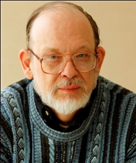 Professor Emeritus Thomas Marlowe, USA Seton Hall University, Department of Mathematics and Computer Science, PhD in Computer Science and PhD in Mathematics.
Thomas J. Marlowe is Professor Emeritus in the Department of Mathematics and Computer Science at Seton Hall University, where he taught a wide variety of courses in both disciplines for almost 40 year, and where he continues to teach occasionally as an adjunct. Professor Marlowe enjoys working with students and with professional colleagues-almost all his research is collaborative.
His professional interests have included, in mathematics, abstract algebra and discrete mathematics; in computer science, programming languages, real-time systems, software engineering, and pedagogy; and in information science, collaboration and knowledge management. His two PhDs are from Rutgers, The State University of New Jersey. He has over 100 publications in refereed conferences and journals in mathematics, computer science and information science, and has been a member on more than 10 Ph.D. thesis and 5 M.S. thesis committees, a member of more than 25 conference program committees, and a reviewer for numerous conferences, journals, and grants. He is the founder of an ongoing professional conference, and has been active with the IIIS and the WMSCI multiconference since 2008.
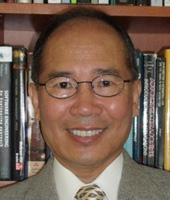
Professor Cyril S. Ku, USA
William Paterson University, Department of Computer Science.
Dr. Cyril S. Ku is a Professor and the Founder of the Data Science Research Lab (https://cs-cit.wpunj.edu/cs/Research/DSRL/) in the Department of Computer Science at William Paterson University of New Jersey. He was elected as the Chairperson of the Computer Science Department for two consecutive terms and led the department to obtain its first ABET accreditation. Before joining the faculty at WPU, he was a Member of Technical Staff at Bell Communications Research (Bellcore, now Ericsson), a Senior Technical Staff Member at AT&T, and a Senior Information Technology Specialist at IBM. His research interests include databases, data science, big data analytics, natural language processing, data/text mining, machine learning, and software engineering. He holds a B.S. degree in Computer Science from Utah State University, an M.S. degree in Computer Science and Applications from Virginia Polytechnic Institute and State University, and a Ph.D. degree in Computer Science from Northwestern University. He is a member of UPE (Upsilon Pi Epsilon), ACM (Association for Computing Machinery), and IEEE (Institute of Electrical and Electronics Engineers) Computer Society.
Abstract
In the era of artificial intelligence (AI), generative AI, and interactive Large Language Models (LLMs) in particular, have become increasingly significant in various sectors. LLMs such as ChatGPT continue to expand their areas of application, seeing use across disciplines. Their use raises serious ethical challenges, but also may have corresponding benefits. The main ethical challenges arise, first, from the known LLM problem of hallucination and fabulation, where a tool such as ChatGPT simply “makes up” information like that in its training set, whether references, reports of experiments or events, or quotations; second, plagiarism, more or less from the same cause; and third, the absence of a real sense of context and a real understanding of critical constraints, with implications ranging from implicit bias, through privacy, confidentiality, and intellectual property concerns, to safety and security. Yet these models also offer some ethical benefits, aiding artifact development by those working in another language and those with cognitive, learning, perceptual or other disabilities, increasing the knowledge base so that critical issues are raised, and supporting searches for ethical concerns. After setting out the general problem, and looking at proposed standards and solutions, as well as the perspective of Catholic Social Teaching (which has analogues in other religious traditions), we focus on embedded systems and software engineering, both as a specific ground to the analysis, and because of the ubiquitous reach of the applications, some of which will involve further interaction with these models or other AI tools or components. We also look briefly at some partial solutions, such as prompt engineering and disciplined approaches to validation and verification.
Cybernetic Relationships between Technological Innovations, Ethics, and the Law
Thursday, September 14, 2023 / 2:20 PM - 2:55 PM

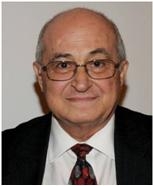 Dr. Nagib Callaos, USA Founding President of the International Institute of Informatics and Systemics: IIIS.
Dr. Nagib Callaos earned his Ph.D. in Operations Research (Mathematical Optimization) at The University of Texas at Austin. In his doctoral dissertation, he presented A Mathematical Solution to The Voter (or Condorcet) Paradox, which by then has 160 years with no solution, and showed the internal contradictions of the axioms used by Nobel Laureate to “prove” his famous Impossibility Theorem that announces the impossibility to solve the Voter Paradox.
Dr. Callaos earned his Electrical Engineering Degree at the University Simon Bolivar, in Venezuela, and his Master's Degree in Electrical Engineering (in Electronics) at The University of Texas at Austin, and received, for 4 years, full-time formal courses in Philosophy, in his post-doctorate studies.
Dr. Callaos is the founding president of the International Institute of Informatics and Systemics (IIIS) and the founding president of the Journal of Systemics, Cybernetics, and Informatics (JSCI). He is the former Dean of Research and Development of the University Simon Bolivar and was the founding president of several organizations on research, development, and technological innovation, e.g. The Foundation of Research and Development of the University Simon Bolivar, the founding president of the Venezuelan Fund for Technological Innovations (created by presidential decree), The founding president of the Venezuelan Association of Executives in Patents and Copyrights, etc. His main research and professional activities were in the area of Systemic Methodologies of Information System Development, Group Decision Support Systems, and Action-Research, mainly via Operations Research. He tutored more than 100 undergraduate and graduate theses and produced more than 100 research papers and reflection articles.
 Dr. Jasmin (Bey) Cowin, USA/Germany Associate Professor and TESOL Practicum Coordinator, Touro University, Graduate School of Education, TESOL/BLE Department.
Dr. Jasmin (Bey) Cowin is a Fulbright Scholar; Assistant Professor and TESOL Practicum Coordinator at Touro University, Graduate School of Education; project coordinator for access and equity in digital literacy for Computers for Schools Burundi; co-Chair of the Technology Enhanced Language Learning SIG 2022 conference, elected member of the CALL-IS Steering Committee for the TESOL International 2023 Electronic Village, and past conference chair of the 51st NYS TESOL conference, 2021.
Dr. Cowin also served as an Editorial Board member of the Journal of Systemics, Cybernetics, and Informatics for its special issue "Trans-Disciplinary Communication; TESOL expert and Train the Trainer for the Future Horizons Foundation for Translation, Training, and Development in Sanaa, Yemen. She served Rotary as the retired Chair of the Rotary Club of New York United Nations International Breakfast Meetings and past President and past Rotary Assistant Governor for New York State for District 5.
Recent presentations focused on: The Metaverse: Layers, Applications, and Terminology, Leading Forward: Distributed Ledger Technologies for Education and Government Institutions, The Power of Trustless Immutability and The Future of Higher Education and Extended Reality: The Next Normal: Metaverse, Virtual Beings, AI cloning for the World Higher Education Ranking Summit (WHERS), Dubai, UAE.
Dr. Cowin brings over twenty-five years of experience as an educator, technology specialist and institutional leader. As an Education Policy Fellow at the EPFP™ Institute, Columbia University/Teachers College, she became part of a select group of strategic leaders analyzing trends regarding effective educational policy and leadership with a focus on preparing qualified educators for the complexities of 21st-century classrooms. Her extensive background in education, the Fourth Industrial Revolution, augmented and virtual reality simulation training, Green and Black Swan market shifts, not-for-profit leadership, and commitment to education as a basic human right provide her with unique skills and vertical networks locally and globally.
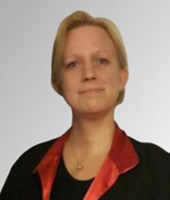
Professor Birgit Oberer, Austria
ETCOP Institute for Interdisciplinary Research
Prior to her current position, Dr. Birgit Oberer served as a professor at universities in the USA, Singapore, and Turkey, worked as a visiting professor in different countries and taught at Austrian Higher Education institutions. Dr. Oberer is currently a professor of computer science at the Education Directorate of Carinthia in Austria. She received her habilitation in Management Information Systems in 2015 and is accredited as an International Engineering Educator by the International Society for Engineering Pedagogy (IGIP). Dr. Oberer serves as a Coordinator at ETCOP and is Learning App Evaluator for the Austrian Federal Ministry of Education, Science and Research. She actively contributes to the academic community through various roles such as keynote and invited speaker, track and session chair, and scientific committee member for reputable journals and conferences, has received multiple teaching excellence awards and serves as the co-editor of the EBM book series.
Abstract
We aim to 1) suggest a historical context of Technological Innovations, in general, and 2) identify a perspective (in the context of a General Notional Pattern) for the New Artificial Intelligence (AI) products, applications, and their impact within the context of Technological Innovations. Consequently, we will briefly examine the impact of two key historical innovations: 1) Stone Tools, which marked a technological breakthrough 400,000 years ago and heralded the Stone Age, and 2) the invention of the wheel around 3,500 BCE. The impact of the wheel's invention still resonates today, as countless innovations have been built upon this foundational creation. While some view the wheel as a discovery arising from the observation of natural phenomena, it is clear that the wheel with an axle is indeed a significant human technological innovation.
Within the framework of these perspectives and their shared elements, we will endeavor to capture the societal implications of new Technological Innovations centered around Artificial Intelligence. These innovations include Generative Artificial Intelligence (AGI), exemplified by systems like ChatGPT, and Artificial General Intelligence (GAI), as seen in entities like Perplexity AI.
We will conclude by suggesting, via analogical thinking, that these novel AI technological advancements would follow a similar notional pattern—giving rise to subsequent technological breakthroughs that, in turn, shape cultures. These cultural changes then lead to shifts in moral values, necessitating adaptations in ethics and even the formulation of new laws. This proactive approach aims to prevent, via laws, emerging forms of injustice and to ensure justice prevails within these evolving cultural and societal contexts.
Meanwhile, we suggest 1) getting support from Pros to deal with the Cons and 2) making some reflections and reflexivity on why the New AI technologies would not follow the cybernetics relations that technological innovations have had for, at least, 400, 000 years. Some answers we got were like “The new AI technologies are UNIQUE”. Our question was, and still is, “How do we know that? Do we have a window to the future? But, we do have a window to the past” .
AI and the Great Debate in Higher Education (Open Debate - Conversation)
Thursday, September 14, 2023 / 4:30 PM - 5:00 PM

 Dr. Risa Blair, USA Purdue University Global, Adjunct Faculty, Department of Humanities and Social Sciences, School of General Education; Instructional Associates, Director of HR and Operations.
Dr Risa Blair is Passionate faculty training developer, instructional design manager, corporate trainer, and project manager with extensive experience in business and higher education, including LMS Administration, New Hire Course Development, LMS Reporting, Project Management, and Curriculum Development for Face-to-Face and Online Learning. Excellent skills in facilitating international client sessions and customizing delivery to meet the client's needs and exceed expectations. Use analytical and management skills to keep projects on schedule, in scope, and within budget. Team-oriented with a focus on managing multiple products and guiding the activities of others.
She is Chief Academic Officer for start-up online international university. Responsible for creating masters' programs and collaborating on the development of the school catalog; hiring faculty to teach in programs; selecting and implementing appropriate LMS; determining educational management software; and representing the school in front of the Florida Commission for Independent Education for approval.
She Completed a Master of Science in Cybersecurity Management (December 2019), along with a Cybersecurity Internship. She seeks to design, develop, and deliver training in the field Cybersecurity Management best practices.
Abstract
Join us at our upcoming conference for a dynamic intellectual exploration within the "AI and the Great Debate in Higher Education (Open Debate - Conversation)" session, meticulously curated to accommodate both AI-fluent academics and those venturing into this transformative domain. In this riveting discourse, we invite you to immerse yourself in the intricate tapestry woven by the convergence of Artificial Intelligence (AI) and academia, where the themes of AI use in higher education and ethical intricacies take center stage. This open-ended exchange of ideas beckons AI experts and novices alike to share their perspectives, experiences, and inquiries. Delve into the profound alterations AI brings to education, unveiling how advanced learning algorithms reshape the pedagogical landscape while concurrently unearthing the ethical dimensions that accompany AI's assimilation. The discussion expands to encompass AI's pivotal role in safeguarding academic integrity through innovative plagiarism prevention techniques. Irrespective of your AI proficiency, your participation enriches the symphony of perspectives. As we collectively chart the trajectory of AI's integration within higher education, your presence contributes to a comprehensive narrative that transcends expertise boundaries, fostering a holistic understanding of AI's promise in the academic sphere.
|

